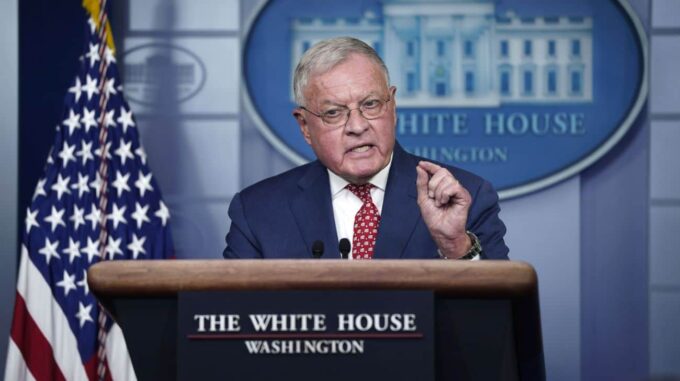Special envoy of Trump calls for opening peace negotiations with Russia through a 30-day unconditional ceasefire

Kit Kellogg, who is acting as the special envoy of U.S. President Donald Trump on Ukraine, made a high-profile statement emphasizing the need to first establish an unconditional three-day ceasefire, and only after that to begin negotiations with Russia regarding ending the war and achieving peace. His comments were published on the social network X (formerly Twitter) and have already attracted significant attention from analysts and officials. Details of his statement were reported by the "European Pravda" news outlet. President Trump's special envoy supported the idea voiced by Prime Minister Jacinda Ardern, who joined Western leaders in calling on Russia to declare an unconditional 30-day truce before starting any peace negotiations. He stressed that without such a short-term ceasefire, any continued dialogue is unlikely and unlikely to be successful. In his direct quote, Kellogg stated: “Even New Zealand’s Prime Minister understands this. As President Trump has repeatedly said, we need to stop the killing! First – an unconditional 30-day ceasefire during which intensive and comprehensive peace negotiations should begin. There is no other way.” The envoy's statement did not come out of nowhere. On May 10, Kellogg expressed to Ukrainian media that a comprehensive and unconditional 30-day ceasefire could trigger the conflict resolution process, emphasizing that it is an important and necessary first step toward ending hostilities in Donbas. It is worth noting that this idea received a mixed reaction in Kyiv. President Volodymyr Zelensky avoided supporting this initiative, calling it unrealistic and unattainable in the realities of modern warfare. Zelensky emphasized that, in his view, the proposed demilitarized zone of 30 kilometers along the line of contact is overly ambitious and difficult to implement in the short term. Meanwhile, particular interest is sparked by the fact that Trump himself, through supporters of close diplomacy regarding Ukraine, repeatedly emphasized the importance of rapid ceasefire and focused on international efforts to achieve peace by unifying approaches and escalating diplomatic pressure on Moscow. Thus, at present, many questions remain regarding the feasibility and rapid implementation of Kellogg’s proposed scenario. At the same time, experts emphasize that any strategy in this conflict must be based on principles of security for Ukraine and a balanced diplomatic approach. The development of events and the reaction of the international community to this statement will show how seriously the U.S. and its allies are prepared to promote the idea of a 30-day truce as a starting step on the path to peace.

